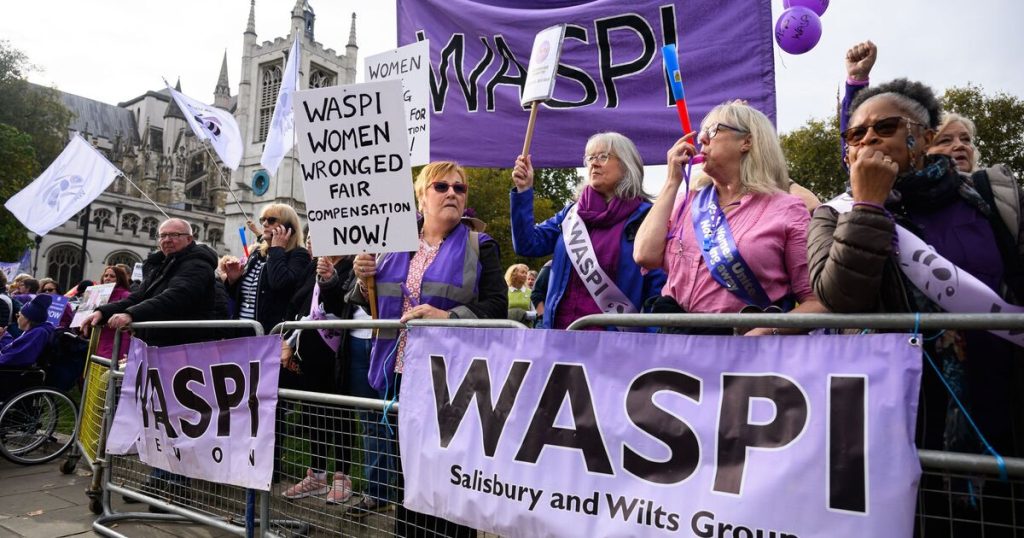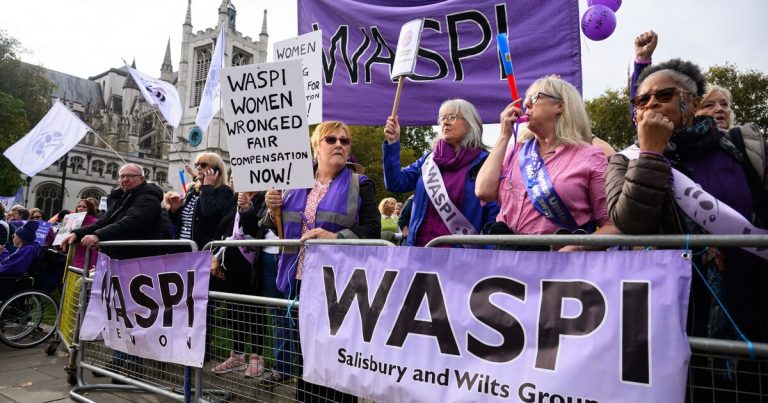
Waspi campaigners have threatened the Government with potential legal action unless it reconsiders its refusal to compensate millions of women affected by changes to the state pension age.
A recent watchdog report recommended compensation for women born in the 1950s, whose state pension age was raised to align with men. However, Prime Minister Sir Keir Starmer has said the Government cannot afford the £10.5billion cost of the package at the taxpayer’s expense.
In response, the Women Against State Pension Inequality (Waspi) campaign has issued a “letter before action” to the Department for Work and Pensions (DWP), threatening High Court proceedings if the issue is not addressed.
Angela Madden, the group’s chairwoman, accused the DWP of “gaslighting” the women affected and vowed not to let the matter go unchallenged.
The campaigners argue that the Government’s justification for rejecting the Parliamentary and Health Service Ombudsman’s (PHSO) report, which suggested women should be compensated up to £2,950 each, is “legally wrong”.
Waspi has launched a £75,000 CrowdJustice campaign to fund their legal challenge, with the Government given a 14-day deadline to respond before proceedings are initiated.
Key figures, including the Prime Minister, Chancellor Rachel Reeves, and Work and Pensions Secretary Liz Kendall, who have all opposed compensation since taking office, previously supported the Waspi cause when Labour was in opposition.
The pension age changes, which were initially announced in the 1990s, impacted around 3.6 million women in the UK, bringing their retirement age in line with men.
The policy was accelerated over a decade ago under the Conservative-Liberal Democrat coalition Government. However, a 28-month delay in informing those affected led to an official Government apology.
The Government has pointed to research showing that by 2006, 90% of women born in the 1950s were aware of the changes. Waspi campaigners, however, argue that many women endured significant financial hardship and had to adjust their retirement plans as a result.
Ms Madden said: “The Government has accepted that 1950s-born women are victims of maladministration, but it now says none of us suffered any injustice. We believe this is not only an outrage but legally wrong.”
She added: “We have been successful before, and we are confident we will be again. But what would be better for everyone is if the Secretary of State now saw sense and came to the table to sort out a compensation package.
“The alternative is continued defence of the indefensible, but this time in front of a judge.”
A Government spokesperson said: “We accept the Ombudsman’s finding of maladministration and have apologised for there being a 28-month delay in writing to 1950s-born women. However, evidence showed only one in four people remember reading and receiving letters that they weren’t expecting and that by 2006 90% of 1950s-born women knew that the state pension age was changing.
“Earlier letters wouldn’t have affected this. For these and other reasons, the Government cannot justify paying for a £10.5billion compensation scheme at the expense of the taxpayer.”







